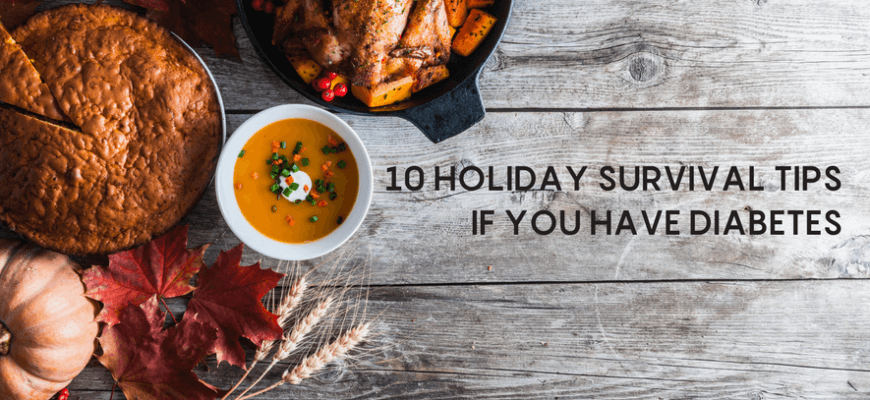
Some of my patients with diabetes ask me what’s the big deal if their blood sugar levels go up a little or they gain a few pounds over the holidays. They say they can always lose the weight afterward and get their sugar levels under control.
To an extent, that could be true. If you’re in good overall health, doing well with your diabetes control and manufacturing reasonable amounts of insulin, a day or two of indulging a bit more than usual in holiday food shouldn’t be a problem.
How long that overindulgence goes on, and how many times, though, are important factors. The holidays can easily extend well past New Year’s. If you slip into bad eating habits, you can do long-term damage, raise your blood sugars and gain weight.
You can keep your weight and blood sugar levels under control during the holidays using these tips.
- Maintain your schedule
If you overeat, trying to catch up by skipping a meal afterward may cause you to overeat when you have your next meal or if a snack is available. Even on your holiday and days away from work, try to get up, eat, exercise and take your diabetes and any other medications about the same time as you usually do. - Check your blood sugar frequently
If you are taking insulin or medications that lower your blood sugar, check your blood sugar more frequently during the holidays, especially before driving a car or adjusting your insulin doses. Make allowances for the changes in your work and exercise schedules as well as your eating opportunities. - Budget your sweets and treats
To keep your blood sugars from skyrocketing, include sweets and treats as part of your carbohydrate budget — not in addition to it. Choose the meat and side vegetables and salad at dinner. Your carbohydrate for dinner could be Aunt Emily’s nut roll that she only makes during the holidays. - Watch your alcohol intake
Moderate alcohol intake can have a blood sugar-lowering effect, so don’t drink on an empty stomach. The amounts of calories and sugars vary significantly among drinks so it can be useful to search nutrition information about your favorite drinks. Recommendations for alcohol for those with diabetes are no more than one drink per day for women and no more than two per day for men. (One drink equals 4 ounces of wine, 12 ounces of beer, 1 ounce of distilled spirits. - Download mobile tools
You can download mobile apps to your phone, including apps that help you count carbohydrates of certain dishes, and let you know how much insulin you need to take (if you use it before meals). - Order smart in restaurants
You’d be pleasantly surprised how many restaurants offer healthy options not mentioned on the menu. Ask for options with less saturated fat, fried food and sugars. Substitute olive oil with fresh pepper for butter. You can also substitute sides. Ask for a baked or boiled potato (skin on) or fresh, steamed or stir-fried veggies instead of mashed potatoes. - Cook light, healthy dishes to take with you to parties.
If you’re going to a holiday dinner, ask if you can bring a dish — one lower in calories and fat — such as a vegetable tray or vegetable-based appetizer. There are many delicious, diabetes-friendly recipes, like low-sugar pumpkin mousse parfait, that you can bring to holiday parties. You can find low-sugar recipes from the American Diabetes Association. - Be ‘party smart’
At the party, enjoy some of the vegetable-based appetizers first, then the meat or cheese appetizers. Place your appetizers on your napkin instead of a plate and you’ll be less likely to overfill it. Another tip: don’t stand near the buffet table or food when talking at a party. It’s also important to stay hydrated. Drink water or club soda with a lime or lemon twist. Keep a calorie-free drink in your hand to keep your hands busy. - Stay active
If you can’t stick to your usual exercise program during this busy time, do some fun activity with family or friends. If 40 minutes a day at one time isn’t possible, break your exercise up into 10- to 15-minute segments, two or three times a day. - Remember the reason for the season
Put the focus on family and friends and not on food. Enjoy what you do eat. Savor each bite! Most important, remember to include time for exercise, meals and relaxation. The holidays will only be great if you’re in good health to enjoy them.


